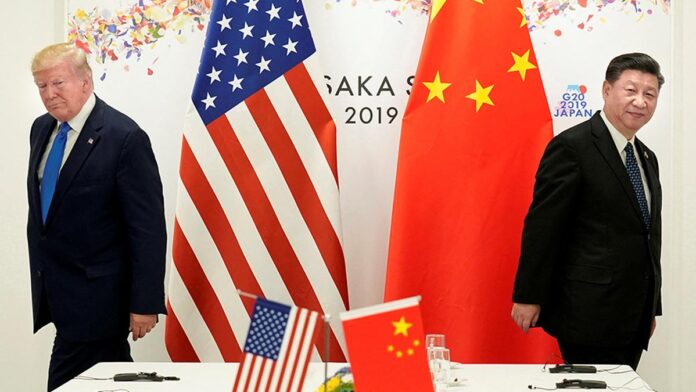
Tough ties: U.S. had imposed tariffs on more than $360 billion of Chinese products during Trump’s previous term in office. File picture of U.S. President Donald Trump attending a bilateral meeting with China’s President Xi Jinping during the G20 leaders summit in Osaka, Japan, in 2019.
| Photo Credit: Reuters
The first time China faced Donald Trump in the White House, there was a trade war, a breach of protocol involving Taiwan’s former leader, and a President-to-President ‘bromance’ that turned sour.
As President-elect Mr. Trump prepares to start his second term in office, China is bracing for unpredictability in its ties with the United States and renewed tensions over trade, technology, and Taiwan.

Perhaps the biggest consequence for China — if Mr. Trump stays true to his campaign promises — is his threat to slap blanket 60% tariffs on all Chinese exports to the U.S.
Tariffs like that would be a blow to China’s already unstable economy, which is suffering from high youth unemployment, a lengthy property slump, and government debt. A 60% duty on Chinese imports could shave off 2.5 percentage points, or about half, of China’s projected economic growth, according to an analysis published earlier this year by UBS.
During Mr. Trump’s previous term in office, the U.S. imposed tariffs on more than $360 billion of Chinese products. That brought Beijing to the negotiating table, and in 2020 the two sides signed a trade deal in which China committed to improve intellectual property rights and buy an extra $200 billion of American goods. A research group a couple of years later showed China had bought essentially none of the goods it had promised. Outgoing President Joe Biden retained most of those tariffs and added fresh duties this year on imports including steel, solar cells, and electric vehicles.
Factoring into the trade talks could be Mr. Trump’s appeals to Chinese President Xi Jinping to help negotiate a resolution to the Ukraine war, which Mr. Trump has boasted he will be able to do quickly, without saying how.
Mr. Trump previously sought Mr. Xi’s help in dealing with North Korea’s leader Kim Jong-un. That dynamic could repeat itself, with Mr. Trump weighing trade grievances against seeking China’s support in global crises, according to Wang Huiyao, founder of the Beijing-based think tank Center for China and Globalization.
“China is the largest trading partner of both Russia and Ukraine,” Mr. Wang wrote in a recent commentary. “These close economic ties give China a unique opportunity to play a greater role in peace-making efforts.”
Case of Taiwan
There is one scenario in which Mr. Trump has threatened to impose even higher tariffs — 150% to 200% — on Chinese goods: if China invades Taiwan, a self-ruled democracy that Beijing claims as its own.
The U.S. does not recognise Taiwan as a country, but is its strongest backer and biggest arms provider.
Mr. Trump angered Beijing in December 2016 by taking a congratulatory call from Taiwan’s then-President Tsai Ing-wen in a breach of diplomatic protocol. No U.S. President had spoken directly to a Taiwanese leader since Washington and Beijing established ties in 1979.
As for China’s repeated threats to annex Taiwan, Mr. Trump told The Wall Street Journal last month that he would not have to use military force to prevent a blockade of Taiwan because Mr. Xi “respects me and he knows I’m (expletive) crazy.”
On the campaign trail, Mr. Trump sometimes talked up his personal connection with Mr. Xi, which started exuberantly during his first term but soured over disputes about trade and the origins of the COVID-19 pandemic.
But Mr. Trump has also said that Taiwan should pay the U.S. for defending it against China, likening the relationship to insurance. Taiwan spends about 2.5% of its GDP on defence, and purchased hundreds of millions of dollars’ worth of U.S. weapons this year.
In a congratulatory message to Mr. Trump after his victory, Mr. Xi called for the U.S. and China to manage their differences and get along in a new era, according to Chinese state media. History has shown that both sides gain from cooperation and lose from confrontation, Mr. Xi said.
Published – November 08, 2024 10:07 am IST
